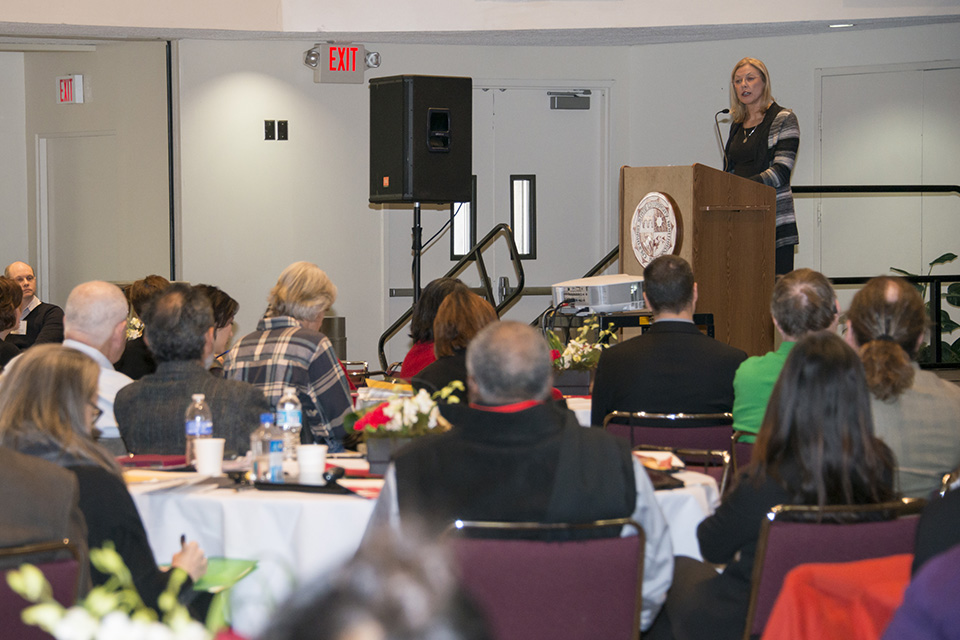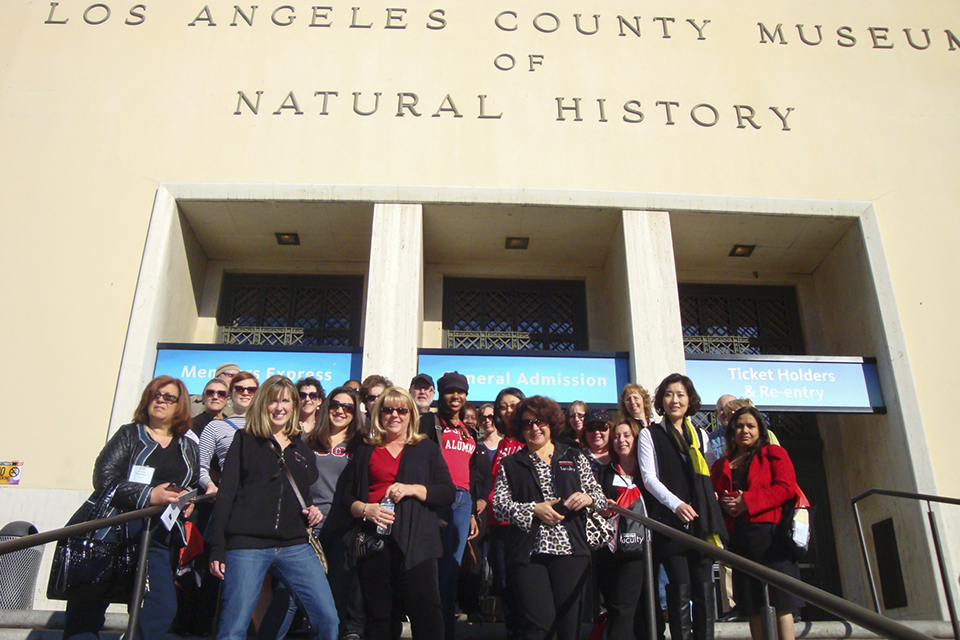President Encourages Faculty to Incorporate Community Engagement in Curriculum
California State University, Northridge President Dianne F. Harrison encouraged faculty to use community engagement or service learning as a way to increase student engagement, learning, retention rates and the likelihood of graduation.
“In my view, as I hope all of you will agree, our most important efforts are those that improve the quality educational experience for students,” said Harrison at CSUN’s annual Faculty Retreat. “Community engagement is a very effective way to do that. Community service allows students to apply what they have learned in the classroom into real-world experiences.”
Harrison, who titled her speech, “Why Engage with the Community? What’s Wrong with an Ivory Tower?” said she was pleased when she found out that this year’s retreat was focused on community engagement because it aligns with her first and highest priority as CSUN’s president, an “unrelenting focus on student success.”
The president noted that CSUN already shines in this area. CSUN is regularly recognized by the Corporation for National and Community Service and named to the President’s Higher Education Community Service Honor Roll with Distinction. This is the highest federal recognition a college or university can receive for its commitment to volunteering, service-learning and civic engagement.
The university was applauded for having more than 140 courses that incorporate service learning and for the campus’ regular blood and bone-marrow drives for the American Red Cross, the annual food and clothing drive held by Unified We Serve and the efforts of volunteers working through CSUN’s Valley Trauma Counseling Center.
CSUN was also cited in Washington Monthly’s 2013 College Ranking as one of the leading master’s universities in the nation in the area of service learning.
“I am very proud of the good work we do here at CSUN,” said Harrison, adding that she would like to see the university ‘kick it up a notch.’”
She challenged departments and colleges — faculty, department chairs and deans — to tie community engagement to research and to consider it as part of the RTP (retention, tenure and promotion) of faculty.
“I hope you will consider making community engagement via student research a part of every major,” Harrison said. “Incorporate it into existing classes, perhaps. We can do this. We owe it to our communities, and we owe it to our students.”
Harrison’s remarks were made during her keynote address on Jan. 13. About 150 faculty attended the two-day retreat, which ended Jan. 14 and was held at CSUN’s University Student Union. The event was opened with a welcome from Faculty President Steven Stepanek ’73 (Math), M.S. ’80 (Computer Science).
The retreat included a variety of panels and presentations, including “The Many Faces of Community,” “Using the iPad to Connect with our Community” and “Fostering Undergraduate Research at CSUN.” Provost and Vice President for Academic Affairs Harry Hellenbrand offered remarks on the “Next Steps in Higher Ed.” In support of the theme, students in the Department of Art’s printmaking class produced hand-printed covers inspired by university community service projects. The second day of the retreat included a field trip to the Natural History Museum, which works with the Department of Anthropology on museum studies and internships.
“Community engaged teaching and learning can be a transformational experience,” said Bobbie Eisenstock, a Department of Journalism faculty member who has collaborated with the National Eating Disorders Association to produce the “Get Real! about Media and Body Image” campaign. Eisenstock’s journalism students and JADE (Joint Advocates on Disordered Eating at University Counseling Services) worked together to create a media toolkit to counteract the media’s negative influence on body image and self-esteem that can subsequently lead to unhealthy eating and exercise behaviors. Eisenstock’s project was one of three highlighted during “The Many Faces of Community” panel.
CSUN’s Center for Community Engagement helps coordinate service-learning projects across the university, in and out of the classroom. For more information about service learning, visit the Center for Community Engagement’s website or call the center at (818) 677-7395.





 experience
experience